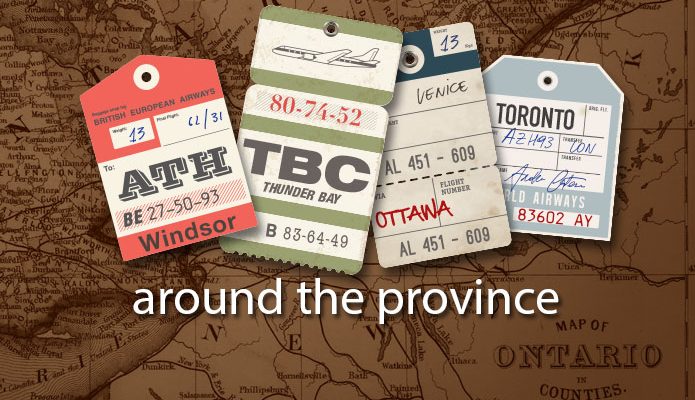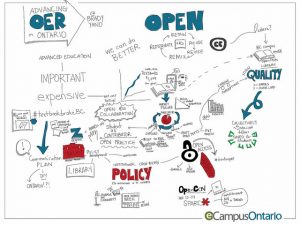
Free Foundations: Empowering Open Advocates at the HLLR Open Educational Resources (OER) Day
On June 8, 2017, Centennial College hosted the Heads of Libraries and Learning Resources (HLLR) OER Libraries Day. The event was sponsored by HLLR, the Ontario Colleges Library Service (OCLS), and eCampus Ontario, and shone a light onto the growing Open Education movement — particularly Open Educational Resources (OERs) — and the role libraries and librarians can play in facilitating the growth of OERs at our institutions.

Following a similar gathering at Ryerson University at the end of March, the event hosted librarians from both colleges and universities across Ontario. This was significant given the increasingly collaborative relationship between college and university libraries around the creation of OER materials, as the 5R philosophy — retain, reuse, remix, revise, redistribute — allows us to break down many of the traditional barriers between materials.
The keynote speaker, Rajiv Jhangiani from Kwantlen Polytechnic University in Surrey, British Columbia, is one of the leading advocates for OERs in Canada and the United States. His keynote covered the hows and whys of OERs, including a persuasive moral argument underpinned by social justice and theories about access to education. He then pivoted to ways librarians can champion and facilitate the growth of OERs. Those who are interested in learning more can view the presentation slides on his SlideShare page (www.slideshare.net/thatpsychprof).
The panel included librarians from both colleges and universities: Ali Versluis (University of Guelph), Will Heikoop (University of Toronto), Chris Woodley (Conestoga College), Christy Taberner (Mohawk College), and Laura Riggs (Mohawk College). Each panelist spoke about initiatives relating to the creation, adoption, and adaptation of OERs at their home insitutions, and it was enormously helpful (and reassuring) to see and hear how the challenges of implementing OER are being handled — and to know that even when others make it look easy, the reality is often quite the contrary!
After several theory-heavy events in the morning, attendees participated in a workshop: a chance for librarians to discuss OERs amongst themselves and actually put theory into practice. BCcampus, the Canadian pioneer for OERs, calls these sorts of events sprints: subject experts gather for two or three days and quickly develop materials about OERs. For this ‘mini-sprint’, each group considered a different broad topic — Understanding OER and Its Value, Libraries and OER, The Campus at Large, and OER Challenges — and created materials that could be developed into an aspirational resource on OERs: a template for understanding and introducing OERs to educational institutions. The resulting materials will be reviewed, edited, and hopefully developed for further dissemination.
Considering the infancy of the OERs movement in Ontario, events like the OER Libraries Day are essential for building a critical mass of understanding — they provide a foundation for greater advocacy, outreach, and eventual implementation. Big things often have modest beginnings, so hopefully this modest beginning is just a signpost for bigger things to come!
Stephen Spong is the Copyright Services Librarian at Centennial College. He can be reached at sspong [at] centennialcollege.ca.


